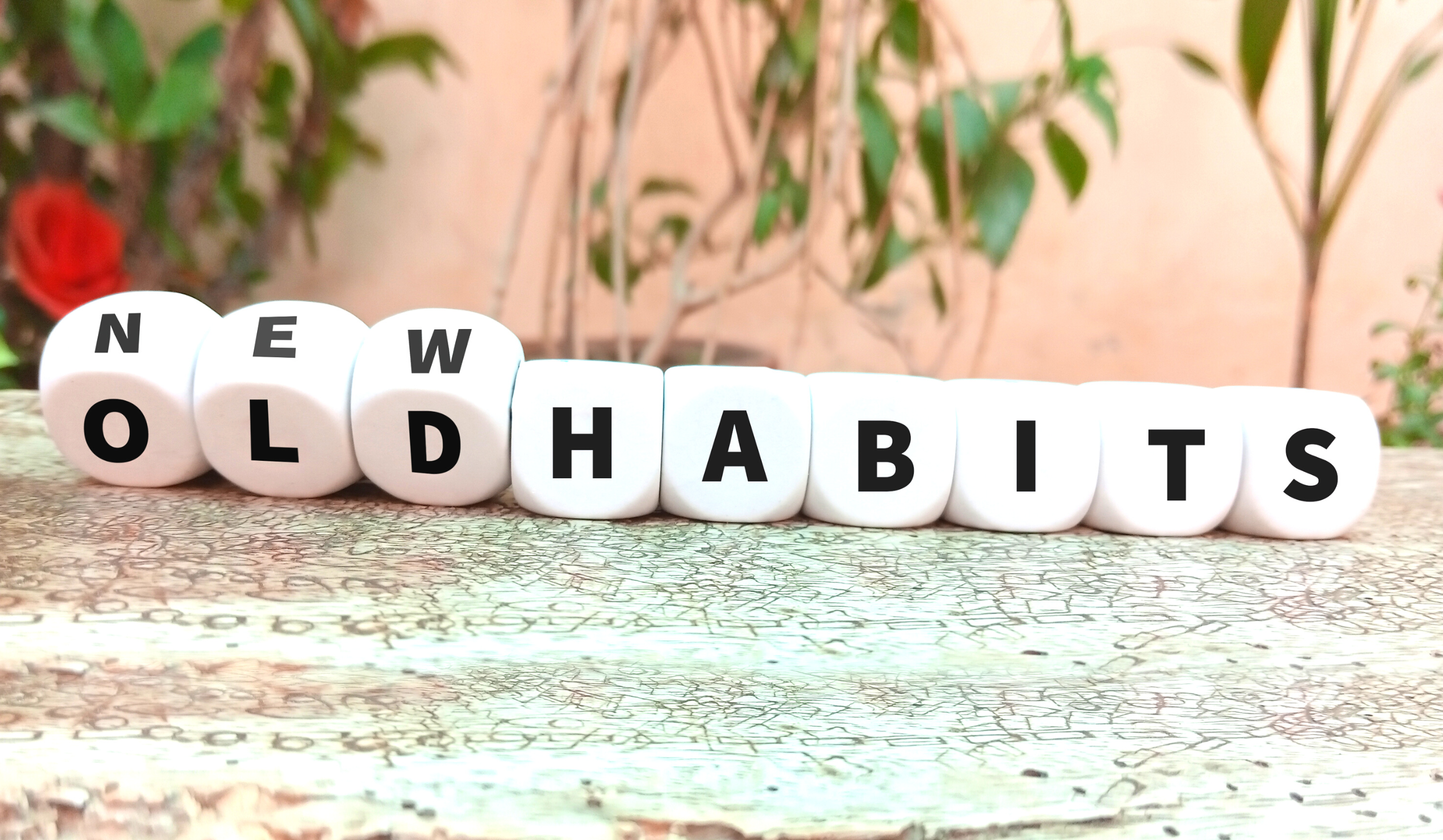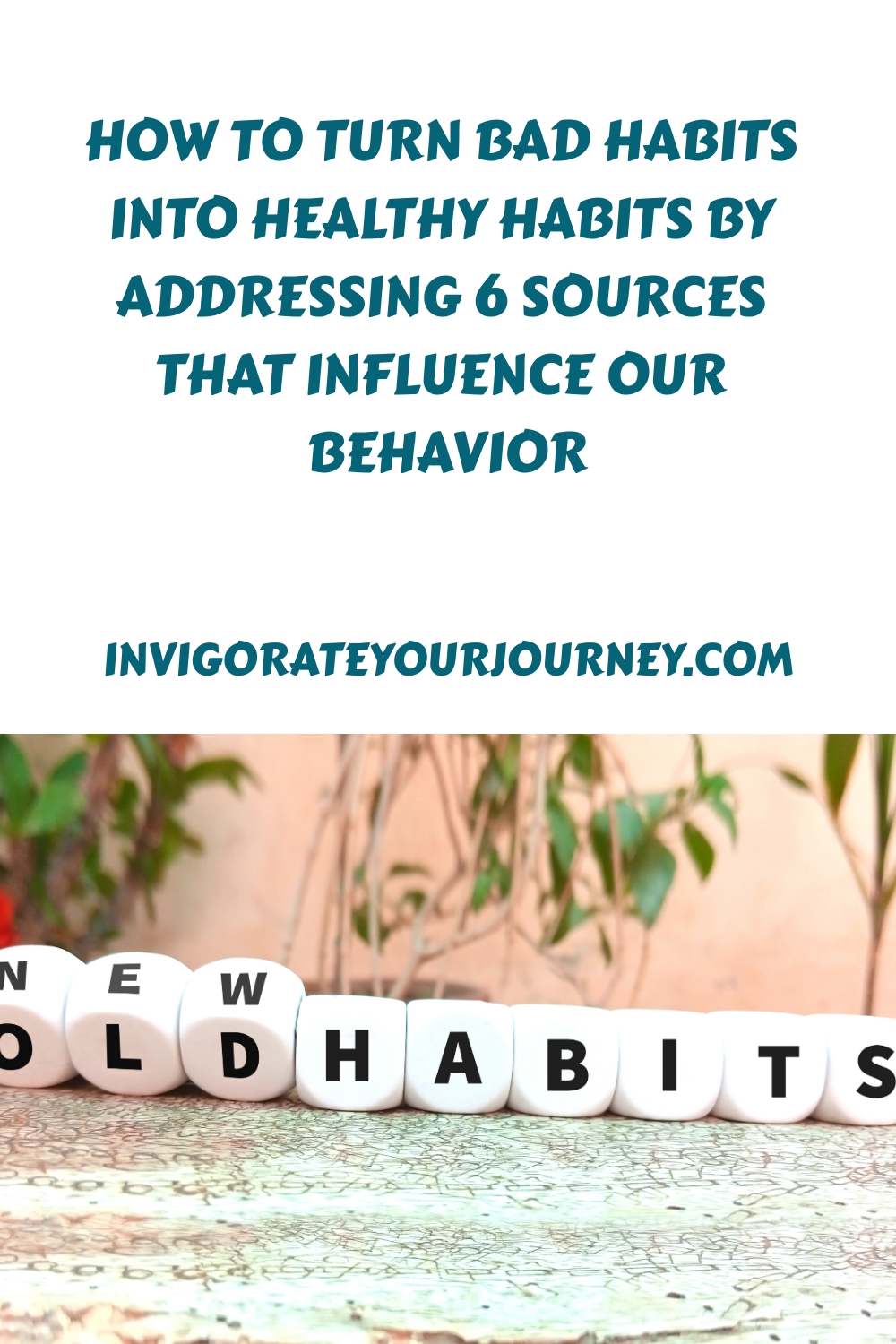Change behavior expert and best-selling author Al Switzler shares how we can manage those sources and have more control over our actions.
Of course, we want to eat healthy, exercise, and go to bed early to effectively care for ourselves regardless of whether we have an autoimmune disease.
Despite knowing all the health benefits and harmful effects of our unhelpful behaviors, willpower goes out the window when a colleague brings in a box of donuts, or you opt for the couch instead of the treadmill after a long work day.
We think if we can summon enough willpower, we can change our habits overnight. The problem with this approach is that when we try to make too many changes at once, we feel overwhelmed and give up.
Instead of trying to achieve drastic transformations overnight, Switzler advocates for the “vital behaviors” approach, which focuses on identifying and mastering the few key behaviors that can bring about significant change in your life.
“If we can control the sources that control us, we’re more likely to control our own behavior.”
-Al Switzler, coauthor of four NYT bestsellers, including Change Anything.
Identify the Vital Moments Derailing Your Progress
Re-hashing your “bad” decisions isn’t fun, but pinpointing triggers is a necessary step. Recurring incidents can shed light on behavior trends and habits. By recognizing when we’re most vulnerable, we can proactively design strategies and interventions to support the hard decisions when temptation lurks.

Triggers aren’t always obvious, though. Triggers can be visuals, smells, body sensations, specific times, places, or memories challenging our motivation. There may be several, and one or two might be flying under the radar.
To help uncover hidden triggers, start with simply jotting down who, what, when, and where you were. Think about how they influenced your behavior in these moments. What were the thoughts and feelings that led up to acting? How does this moment differ from others? What factors make this moment different from all others? Get a notepad and pen, and take a few minutes to write down what you notice about the situation.
How to Manage the 6 Sources that Influence Our Behavior and Habits
Once we’ve identified these defining moments, we can develop a plan to address the six sources that influence our behavior to increase our success rate of making tough choices in our most vulnerable moments.
- Personal Motivation – Why am I doing this?
- Personal Ability – Can I do this? If not, can I learn a skill to do it?
- Social Motivation – Do I have encouragement and support?
- Social Ability – Do I have someone to coach me, give me feedback to improve?
- Structural Motivation – What rewards/incentives will help keep me going?
- Structural Ability – How can I change my environment to make my good behavior easy and my lousy behavior hard?
Personal Motivation – Why am I doing this?
The first and most important source of influence is identifying *your why*. Whether you want to reduce pain, have more energy for your kids, or live healthier, ask yourself why. Significant, meaningful reasons will fuel your motivation and “willpower.”
Dig deep and get specific. Our reason for doing something challenging has to be MUCH bigger than whatever temptation is in the moment. Otherwise, we’ll dive into bagels, pizza, candy, whatever your vice, every single time, regardless of how much we try to talk ourselves out of it.
Write down your reasons to carry with you or record them in a notes app to remind yourself of your reasons in those pivotal moments. Re-reading them or, better yet, saying them out loud can get you past your trigger point.
The key is staying busy. Physical activity can help burn off anxious energy and help calm your nervous system. The more we practice healthy ways to get through cravings and make healthier choices, the easier it gets over time. Eventually, it’ll be habitual and second nature, so you hardly think about it.
Resources to Identify Your Why
- Free Download: Invigorate Framework
- Mel Robbins Podcast: 3 Steps To Finding Your North Star: An Exciting New Approach To Designing Your Life
- The Designing Your Life Workbook
Personal Ability – Can I do this? If not, can I learn a skill to do it?
Personal ability includes your skills, abilities, and experiences. We won’t always have the skills to make the good decisions we strive for. You can improve this source of influence by learning new skills and acquiring new knowledge. The more skills you have in your wheelhouse, e.g., those that come quickly to you, the more influence you will have in making good decisions.

For example, if you want to get a raise at work, you could read books or listen to podcasts on negotiating with managers so that when it comes time to ask for a raise, you’ll know the kind of information to have on hand to help your chances best. Or, if you want to start an online business but don’t know how to write code, reading about programming or taking a class can help you build the skills needed for your business.
Learning new skills also increases confidence and inspires motivation when working toward a goal. It can also help you develop patience, communication, and persistence. It builds self-esteem and makes you feel good about yourself — which can motivate you even more!
Invigorate Tip: Personal Growth and Professional Development steps offer resources to support your growth and development, including podcasts when you can only manage to listen, webinars when you can stay vertical for short periods, online courses when you’re up for it, and more.
Social Motivation – Do I have encouragement and support?
Building a support network is one of the most powerful ways to achieve your goals. You may achieve your goals faster and more efficiently by getting the people around you on board with your plans. Three and four sources of influence are peer and social pressures around us.

Humans are naturally social creatures, and the people around us heavily influence our decisions and behaviors – good and bad. We can leverage the power of social influences by getting the people around us on board with our goals.
Let them know what you’re up to and how they can help. These like-minded folks can help keep us on track or at least not derail our efforts.
Social motivation comes into play when trying to change bad habits because it gives us an external force that keeps us accountable for our actions. If everyone around you knows about your goal, they will be more likely to help keep you on track or encourage positive behavior than if they didn’t know what was happening with you.
Social Ability – Do I have someone to coach me, give me feedback to improve?
Coaches understand that making positive changes can be challenging, especially when dealing with autoimmune diseases. But they believe in your potential to overcome obstacles and refuse to let those conditions define you.
By providing additional tools and tips, coaches become your partners in your journey toward self-improvement. They don’t claim to have all the answers, but they possess a wealth of experience helping individuals overcome their bad habits and achieve their goals.
Through their guidance, coaches help you identify your unique strengths and weaknesses, unlocking your full potential. This newfound awareness translates into better results empowering you to excel despite the challenges posed by your autoimmune condition.

More than just advisors, coaches serve as crucial sources of support during tough times. When you feel discouraged or overwhelmed, they’ll lift you and restore your belief in yourself. Acting as your accountability partners, coaches help you maintain focus on what truly matters, ensuring that you stay on track toward your goals.
Their guidance goes beyond just motivation and encouragement. Coaches equip you with the practical tools necessary for success. Whether it’s devising personalized strategies or teaching you practical techniques, they provide you with the resources you need to thrive.
Coaches not only possess expertise in their field, but they also understand the unique challenges faced by individuals with autoimmune diseases. Their guidance is grounded in empathy and backed by professional knowledge, making them an invaluable ally in your journey.
Remember, you don’t have to navigate this path alone. Reach out to coaches who can support you, provide valuable insights, and help you make positive changes that will empower you to live your best life, regardless of your autoimmune condition.
Structural Motivation – What Rewards & Incentives will Help me Strive?
As people with autoimmune diseases, we often face daily challenges requiring us to make difficult health decisions. It can be challenging to stay motivated and make choices that align with our long-term goals.
That’s where structural motivation comes in. By utilizing incentives and rewards, we can give ourselves the extra boost we need to make those healthy decisions.
According to sources five and six, structural motivation can provide a sense of reinforcement that can go a long way in our wellness journey. Rewards trigger the release of dopamine, a chemical in the brain that helps regulate motivation and pleasure.
This is why receiving a special reward when we achieve a health goal can make us feel good and motivate us to continue making positive decisions.

There is no “one size fits all” approach to positive reinforcement. What works for one person may not work for another, and you may have to experiment with different approaches before finding the ones that work best for you!
The key here is to find something that works for you and your unique situation. If you have trouble motivating yourself, get creative and try different ideas! A reward doesn’t have to be extravagant or expensive; it just needs to be meaningful enough for you. When it comes to positive reinforcement, it’s all about finding what works for you.
Structural motivation can be a powerful tool for building positive habits and achieving goals. Incorporating incentives and rewards into our wellness routine makes us more likely to sustain healthy behaviors and improve our health outcomes. It’s important to remember that these rewards do not have to be extravagant, but the satisfaction of receiving a little boost can do wonders for our motivation.
Structural motivation can help us stay focused and make smarter, healthier decisions. Whether it’s the thrill of receiving an incentive or the relief of achieving our goals, rewards can motivate us to stay on track and optimize our health.
Remember to be kind to yourself, celebrate small milestones, and take advantage of structural motivation’s benefits.
Structural Ability – How can I change my environment to make my good behavior easy and my bad behavior hard?
Living with an autoimmune disease can be overwhelming. Managing symptoms, sticking to treatment plans, and making lifestyle changes can seem daunting. But what if there was a way to make it easier to maintain good behaviors and even harder to engage in bad ones? That’s where structural ability comes in.
Structural ability is the idea that our environment can shape our behavior for better or worse. By intentionally designing our environments to encourage good habits and discourage bad ones, we can make healthy choices the default option.
Invigorate Tip: Prepare for Decision Fatigue. We make hundreds of decisions each day, and as the day goes on, decision fatigue sets in, which is why ordering pizza Friday night seems much easier than figuring out a meal to cook for dinner. Have a plan, so you don’t have to make the choice.
Eating healthier is a common goal among people with autoimmune diseases, and simple changes can have a lasting impact. For example, switching to smaller plates to help with portion control or signing up for a grocery delivery service to help ensure you have healthy food.

You can also use structural changes to make bad habits harder. Throw out the container of ice cream to remove the temptation altogether. Or, if you want to spend less time on Facebook, block the site on your computer and put an app blocker on your phone so that it’s impossible for you to access it.
If you don’t give yourself a choice, you don’t have to make the choice. When you want to change your life, consider what small changes can be made to your environment to help you achieve your goal.
Turn bad days into good data – Continuously Monitor and Adapt
No one gets it right the first time. We need time to analyze, adjust and try again until we get the system right.
Behavior change is not a one-time event but an ongoing process requiring constant assessment and adjustment. By regularly evaluating our progress and making necessary tweaks to our strategies, we can ensure that we stay on the path toward our desired outcomes.
Invigorate Tip: 5 Ways to Cope through Cravings:
- Go for a walk outside.
- Take a shower or bath.
- Put on a yoga, cardio, HIIT, or another workout video.
- Roll up your sleeves and do some picking up and cleaning. Remember that it doesn’t matter how far you get; each step is progress.
- Get groceries, return Amazon packages, or run other errands.
Learn from your missteps to identify where you took a wrong turn and adjust your course for next time. Customize and personalize your plan to align with your goals, strengths, weaknesses, and environment.
Changing bad habits into healthy ones is a process that takes time and effort, but the rewards are worth it.
Let’s figure it out together, my friends.
Dance on,
Karin
Sources
- Al Switzler, cofounder of VitalSmarts, researches methods for driving sustainable, measurable behavior change. Switzler is coauthor of four NYT bestsellers, including Change Anything.
- YouTube Tedx talk on The 6 Sources of Influence.
- Inc.: 5 Questions You Should Ask Immediately After a Failure
- Lifehack.org: 5 Great Questions to Ask Yourself After a Failure

 Karin W
Karin W 






